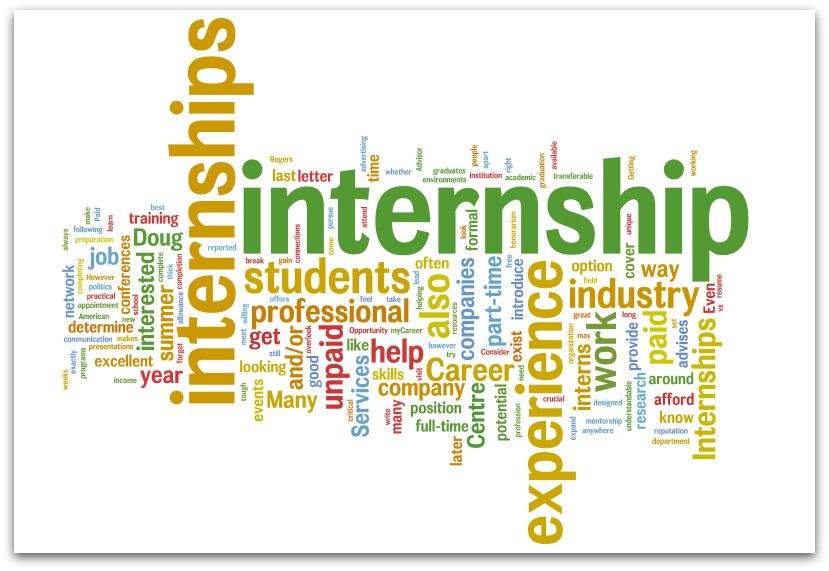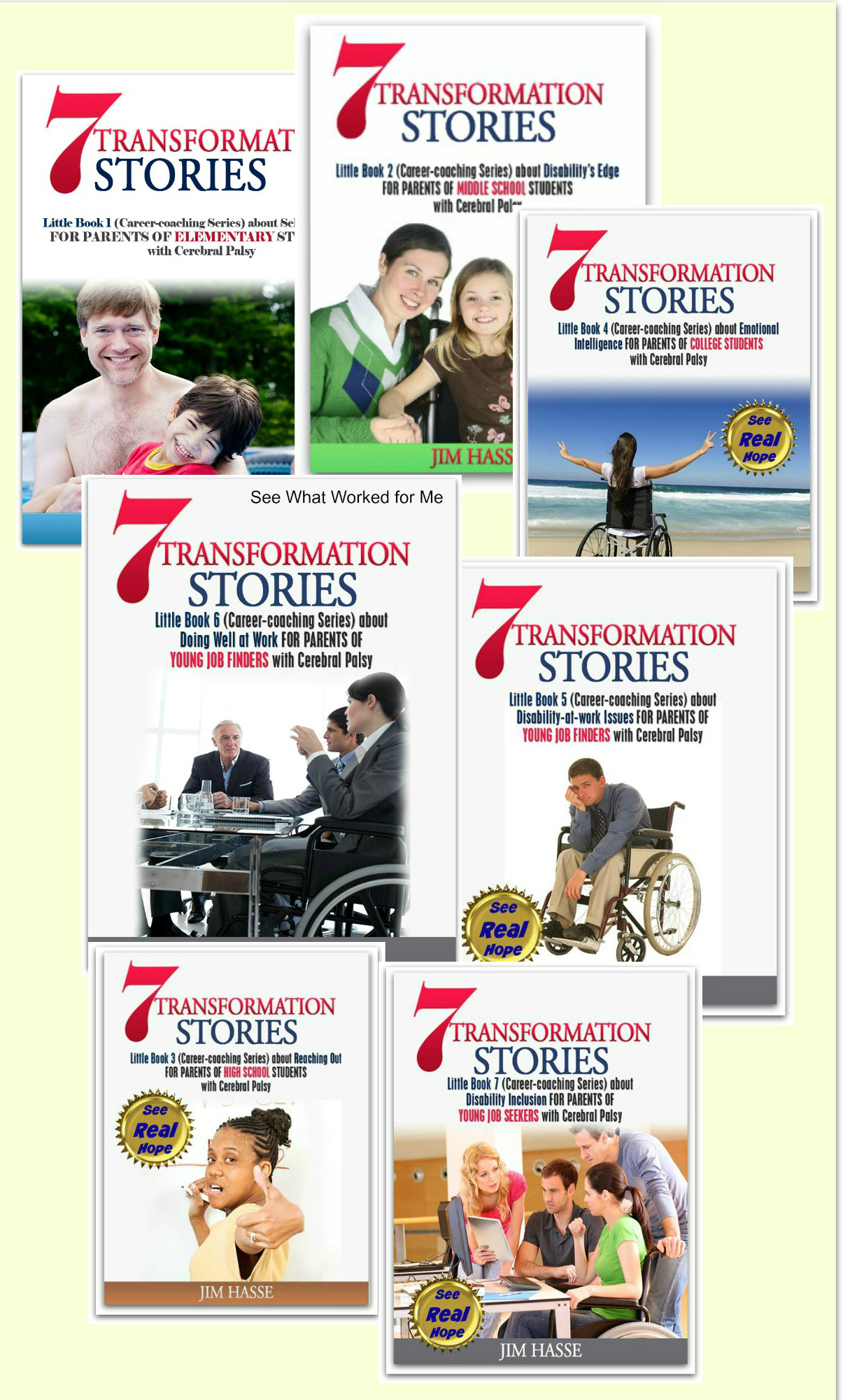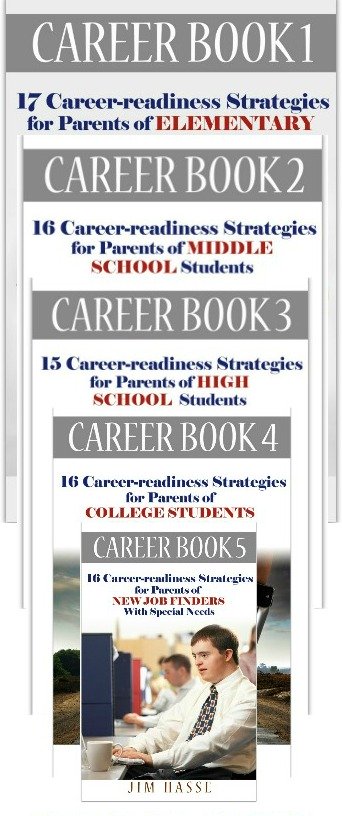Cornell
University: Cerebral Palsy
Career Builder for College Students
By Jim Hasse, ABC, GCDF, Disability Employment Expert
_________________________________________________________
“Don’t miss your important connections at Cornell University.” That needs to be your key message to the college student with cerebral palsy (CP) you’re guiding as a career coaching parent, counselor or mentor.
Here’s why.
The Employer Assistance and Resource Network (EARN)) is your college student’s connection to the Workforce Recruitment Program (WRP).
EARN
is part of the National Employer Technical Assistance, Policy and Research Center
at Cornell University.
It is funded by the Office of Disability Employment Policy, U.S. Department of Labor.
The WRP is a win-win for college students with disabilities and disability-friendly employers.
But, first, a little background. During my last 20 years of researching disability employment issues, I’ve noticed that the three most common statements I hear from closely-involved people as well as those only slightly involved in employee recruiting are these:
- “Employers can’t find qualified job candidates with disabilities.”
- “Job candidates with disabilities are often overlooked in
on-campus interviews with employers that are organized by career services
staff.”
- “Those students with disabilities who happen to land a job interview are often unprepared to effectively show why they are qualified for a specific job.”
Those three statements are not my
suppositions. They have been a stubborn reality for four decades since the
Rehabilitation Act of 1973.
Consider this finding. According to the National
Council on Disability’s 2008 study, “Achieving Independence: The Challenge of
the 21st Century,” the most commonly cited reason among employers for not
hiring people with disabilities is a “lack of qualified applicants.”
Cornell University and the WRP are proving that “not
finding candidates with disabilities who are qualified and prepared” just does
not have to be the case in this second decade of the 21st Century.
The WRP today is paving the way to brighter employment prospects for thousands of college students with a disability and access to new (and qualified) emerging talent for hundreds of employers across the U.S.

EARN at Cornell University is your first connection
Your college student with
CP needs to connect with EARN at Cornell University, the gateway to the WRP.
Since 1995, the WRP has provided employment
opportunities for over 6,000 students with a disability, according to Kathleen
Lee, business outreach specialist, Cornell University.
As a recruitment and referral initiative, the WRP
connects federal and private sector employers nationwide with highly motivated
post-secondary students and recent graduates with disabilities who are eager to
prove their abilities in the workplace through summer or permanent jobs.
The WRP is co-sponsored by the U.S. Department of Labor's Office of Disability
Employment Policy (ODEP) and the U.S.
Department of Defense with the participation of many other federal agencies and
sub-agencies.
What other services like
the WRP
provide students with disabilities
access to internships?
Join PACER’s Facebook
discussion.
What to do to get into WRP's database
How does your college student get on the WRP’s database? Here are a few things you need to know.
First, to participate in the WRP, your college student must be at
least 18 years old and submit an online resume to the Employer Assistance and
Resource Network (EARN). Your college student’s campus needs to have at least eight
students with a disability apply for the WRP before a recruiter begins
interviewing.
Second, contact the Disability Student Service (DSS) career
counselor on your youngster’s campus to make sure the school is a WRP
participant.
Third, to become a part of the WRP’s annual database, your son or
daughter needs to apply online at www.wrp.gov in August of each year in order to participate in the DSS
training sessions on campus and meet with a disability-trained recruiter during
October and November.
Candidates who qualify for the database are then contacted by EARN. The
database is launched in December, and employers who complete an online request
form can recruit students between December and July of the following year.
Fourth, candidates who become eligible for the database usually do
well in both written and oral communication during interviews by a recruiter
who understands disability employment issues.
Using a rating of 1 to 5, a recruiter evaluates each student applicant in terms
of qualifications (based on transcripts, resume and experience), maturity,
written and oral communication (the “biggie”) and direction as well as an
overall score. A student must score 3.0 or better in the overall rating to be
eligible for the database.
Lee says the WRP offers advantages to
both job seekers and employers during the recruitment process.
Job seekers, for instance, get the support they may
need to present themselves effectively during the database selection process.
They are able to interview with a recruiter who understands disability. They
are part of a recruitment process that offers a “level” playing field that
engages employers who actively seeking job candidates with disabilities.
And employers feel more confident that they are
interviewing highly qualified students with disabilities as part of their
overall recruitment strategies and that they have access to emerging talent.
They have an opportunity to assess whether particular candidates are the “right
fit” for their companies through an internship experience.
When I graduated from college in 1965, career
counseling at the University of Wisconsin-Madison did not exist as we know it
today. My academic advisor candidly said that, yes, indeed, he thought I could
hold a job, despite the fact I had CP and walked and talked with difficulty.
He recommended I apply for state
government work, even though the economy and job prospects in the private
sector were quite bright at the time and my classmates were getting good paying
jobs in the private sector.
That was the extent of career counseling back then. I
needed Cornell University, EARN and the WRP. Cornell University was around, of
course, but EARN and WRP were not.
Please help your college student with CP
take full advantage of the expanded opportunities he or she has through Cornell
University by first researching EARN and the WRP.
The WRP could open doors for him or her to
the mainstream workplace.
What other services like
the WRP
provide students with disabilities
access to internships?
Join PACER’s Facebook
discussion.
Return from Cornell University to
Interview Tips
Go to Cerebral Palsy Career Builders
This is Creative Commons content. You can freely and legally use, share and repurpose it for non-commercial purposes only, provided you attach this sentence and the following attribution to it (including the two links):
Originally written and illustrated by Jim Hasse, ABC, GCDF, owner of Hasse Communication Counseling, LLC, who, as a person with cerebral palsy, served for 10 years as a vice president in a Fortune 500 company during his 29-year career in corporate communication. He’s an Accredited Business Communicator, certified as a Global Career Development Facilitator and author of 14 Amazon books about disability awareness and disability employment issues.





